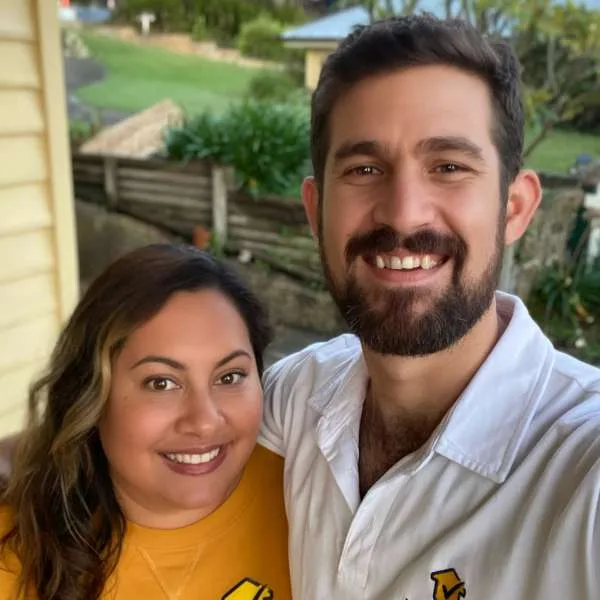Key takeaways
- The cooling off period gives a property purchaser the chance to back out of the sale after the contract is signed.
- The cooling off period only applies to private sales of properties, not auctions.
- States and territories have different lengths of cooling off periods, with WA and Tasmania not offering cooling off periods at all.
What is a cooling off period?
When buying a property, there's a critical stage after you sign the contract called the 'cooling off period'. This is where you can cancel the sale for any reason you like – despite the fact you've signed a legally binding contract to purchase the property.
Each state and territory has different rules around cooling off periods and some states don't have cooling off periods at all. In those that do, cooling off periods only apply to a private settlement (or private treaty) when buying a house. They do not apply when you're buying a property through an auction. However, if the seller and buyer personally negotiate the contract after the auction, a cooling off period may apply.
If you decide to walk away from the property within the cooling off period, cancelling the contract may incur a financial penalty, generally equivalent to 0.20% to 0.25% of the final sale price of the property.
Compare the cooling off period in each state and territory
State | Cooling off period | Percentage of sale price you forfeit | |
|---|---|---|---|
| ACT | 5 business days | 0.25% | $1,250 |
| NT | 4 business days | 0 | Nil |
| NSW | 5 business days | 0.25% | $1,250 |
Queensland | 5 business days | 0.25% | $1,250 |
SA | 2 business days | Small holding deposit is forfeited (up to $100) | $100 |
Victoria | 3 business days | $100 or 0.20% (whichever is greater) | $1000 |
WA | Nothing mandated by law, but you can add a clause in your contract | 100% | $500,000 |
Tasmania | Nothing mandated by law, but you can add a clause in your contract | 100% | $500,000 |
How does the cooling off period work?
As you can see, the cooling off period when buying a house can go up to 5 business days. It starts on the day you received a copy of the signed contract and ends at 5PM on the last day of the period.
It's advisable to ask for a notice of receipt when the contract is delivered as proof of when the cooling off period started.
During this period your solicitor or conveyancer should make enquiries to detect any potential problems with the property. These enquiries may include a building and survey report, or the certificate of compliance secured from the local office. If there are any problems, you can use the cooling off period to terminate or cancel the agreement.
When you wish to rescind the agreement, you have to write a letter or notice of termination to the agent. You do not need to give any explanation as to why you are cancelling the contract. This letter should be rendered within the cooling off period and not after since you will be bound by the contract after that.
There are 3 ways you can render the letter of termination – given personally to the agent, mailed or delivered to the agent’s business address, or delivered to a place assigned in the agreement should a cancellation take place.
As the seller, once the contract is terminated within the cooling off period, you must give back the deposit within 14 days after the cancellation, with the penalty already deducted.
Steps to follow:
- The agent must give you a copy of the unsigned contract at least one business day before the agreement is signed.
- The agent must give you a copy of the consumer guide regarding agreements done when selling a residential property at least one business day before the agreement is signed.
- You, the client, must sign the waiver form approved by the Office of Fair Trading before signing the agreement.
Waiving the cooling off period
As the buyer, you can choose to waive or shorten the cooling-off period. You will need to put this in writing and clearly state:
- That you choose to waive the cooling-off period entirely
- That the cooling-off period will last until 5pm on a particular day.
- You must also give the seller a 66W certificate in compliance to the Conveyancing Act 1919.
- This certificate must be signed by your legal representative.
Waiving the cooling off period might make your offer more attractive to the seller; however, you should exercise caution before waiving it. Be sure that your conveyancer has already made all the necessary inspections like pest and building inspections. You should also make sure that your finances are ok, which means your loans have been approved.

"Don't ever be pressured into waiving the cooling off period by the agent or the seller. This can happen when there are known but undisclosed problems with the house. You might think it's OK to waive the cooling off period at the time, but you'll probably come to regret it. Pressure to waive the cooling off period is almost never a good sign."
More questions about the cooling off period
Sources
Ask a question
43 Responses
More guides on Finder
-
Should I make a pre-auction offer on a property?
A guide to making a pre-auction offer, how to do it properly, when to do it and when not to do it.
-
What is a Section 32 or Vendor’s Statement?
We run through Section 32 statements and talk about what important facts are contained in these documents.
-
What is a Section 173 Agreement?
A Section 173 Agreement is a contract between a local council and a landowner about what can be done with the land. If you own property in Victoria, learn about how Section 173 Agreements work here.
-
Sinking fund and strata properties: What you need to know
A sinking fund is an essential financial plan for any strata scheme, allowing the owners’ corporation to set aside funds for future capital expenditure.
-
What does “under contract” mean?
The words “under contract” don’t necessarily mean that a property sale is a done deal. Find out more about this term here.
-
Buying a house in the 80s versus today
Find out the scary differences in owning a home in 1984 compared to 2025.
-
Property inspections when buying a home
What everyone should know about property inspections and why it’s an important task to complete before committing to a purchase.
-
Costs of buying a house or unit
Work out all the upfront costs of buying a house with our handy guide.
-
Joint home loan: Tips for co-buying property
A joint home loan could be your ticket to home ownership with a spouse, friend, relative or partner. Learn more about joint home loans and compare offers today.
-
Bank valuation vs market value: What’s the difference?
A property's market value helps determine how much it could sell for while a bank valuation helps a lender determine its risks, and the two values can be very different.



Having accepted a price for the sale of a property 10 days ago (being a Saturday) and contracts signed by our party 4 days later, building/pest inspection completed and other party’s banks valuation completed when should we expect exchange of contracts. Also when does the cooling off period start and finish. Is it from the acceptance date or from exchange of contracts? We are from NSW but unsure if the waiver was signed.
Hi Cathy,
Thanks for your enquiry.
finder.com.au is an online comparison service and we cannot provide you with advice regarding your personal situation.
When you buy residential property in NSW, there is a 5 business-day cooling-off period after you exchange contracts.
In regards to the exchange of contracts, please speak with your solicitor.
Thanks,
Belinda
is there a cooling off period in arizona, usa
Hi Joe,
Thanks for your enquiry.
There is a cooling off period in Arizona. However, we suggest that you contact your state department directly to discuss this legislation.
Thanks,
Belinda
What happens if the real estate has not passed my request to terminate the contract within the cooling off period ?
I got really surprised today with such professional misconduct by this real estate who locked me in the sale of the contract after not passing my termination request to the vendor.
How can I go about this ?
Hi Dave,
Thanks for your question.
In this unique case it’s best to speak to a certified legal practitioner or a buyer’s agent if you have one. If you have fulfilled all the requirements stated in your contract regarding the cooling off period, then your request should be fulfilled.
Cheers,
Shirley
Can I cancel the contract as a seller during the cooling off period?
Hi Geoff,
Thanks for the question.
This is not possible as the cooling-off period is only designed to benefit buyers. We have written a guide on cooling-off periodswhen selling a home.
I hope this helps,
Marc
I’ve put a $1,000 deposit to take a house and land off the market. I am yet to receive a copy of the contract, as the seller is waiting on three documents from the council. Can I stop the process and still get my $1,000 deposit?
Hi Mary,
Thanks for your question.
On the NSW Fair Trading website it states that, “When you buy a residential property in NSW there is a five business-day cooling-off period after you exchange sale contracts. During this period you have the option to get out of the contract as long as you give written notice. The cooling-off period starts as soon as you exchange and ends at 5pm on the fifth business day.
If you use your cooling-off rights and withdraw from the contract during the five business-day period, you will have to pay the seller 0.25% of the purchase price. This works out to be $250 for every $100,000.”
Should you require anymore information, please speak to your trusted solicitor or agent.
Cheers,
Shirley